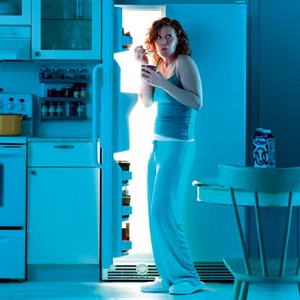Summer is the best time for kids to join sports clinics. Though the heat is unbearable for adults, kids do not mind for as long as they enjoy playing the sport they are into. Parents load their kids’ gym bags with lots of bottled water and constantly remind them to drink a lot.
Sports drinks are becoming a fad these days. They have been concocted to entice kids that it tastes better than water. Yes, there are a lot of flavors and colors even to choose from. But are they healthy for kids? Let’s check which is the better option for hydration?
Ingredients of Sports Drinks
According to thenutritiondr.com — “The energy in sport drinks is provided largely in the form of carbohydrates such as glucose, sucrose, fructose, corn syrup, maltodextrins, and glucose polymers. Maltodextrins and glucose polymers are mostly cornstarch that is partially broken down. Glucose and fructose are monosaccharides, whereas corn syrup is derived from cornstarch, which has been partially broken down to short, branching chains of glucose. Maltodextrin is just a few glucose molecules linked together with a branching point. Glucose polymers may just be short chains of glucose. Carbohydrates usually make up about 6 to 8 percent of the sport drink. Recently protein and amino acids have been formulated into sports drinks with research suggesting better hydration, performance and recovery.”
Weekly consumption of sports drinks and energy drinks among adolescents is significantly associated with higher consumption of other sugar-sweetened beverages, cigarette smoking, and screen media use, according to a study conducted by researchers from the University of Minnesota and Duke University.
The study was undertaken to build understanding of health behavior patterns related to adolescent consumption of sports and energy drinks and inform intervention strategies to reduce consumption of these sugar-sweetened beverages. Although national data have shown a decline in the prevalence of soft drink and fruit drink consumption, sports and energy drink consumption has tripled among adolescents in recent years. The high caffeine content of energy drinks, as well as the high sugar and calorie content of many sports and energy drinks, has drawn much concern from health professionals.
The American Academy of Pediatrics recommends that sports drinks should be consumed by adolescents only after vigorous, prolonged activity, and that energy …
Composition of Water
According to Peer.tamu.edu — “Everyone is very familiar with water. We observe it as rain and snow and can see it in the oceans, lakes, rivers, and streams. Although the water in our bodies is not as apparent, recognize that most of our weight is made up of water. In fact, the normal adult is made up of approximately 60% water. Thus, water is essential for life.”
“Water is made up of hydrogen ions (H+) linked to hydroxyl ions (OH–) to form H2O. The molecular formula for water is H2O. From this formula and the atomic weights for hydrogen and oxygen you can calculate that the molecular weight of water is approximately 18 grams.”
Playing a sport lets kids become active and alert. It is not just physically but even mentally. It’s a great exercise to keep them healthy. The influx of advertisement about sports drinks gives them the idea that it is beneficial for them. Even parents are tempted to buy these sports drink for their kids.
The issue of hydration must be considered when choosing these options. When we sweat, we release lots of ions known as electrolytes. So, sports drink manufacturers advertise the immediate replacement of electrolytes in the drink. They have added flavors thus it is very attractive for kids and teenagers. But they contain lots of sugar that surely adds to their weight. Water on the other hand is made up of natural ions and not artificial ones.
“When debating sports drinks vs. water, no one will argue that water is a poor choice. On the contrary, clean, filtrated water is the best drink with which to hydrate the body before, during and after exercise, as it is easily absorbed by the body without filtration.” (Source)
So, we need not argue. Natural is still better than artificial. Drink lots of water for better hydration.
Make sure you read the entire article at Naturalblaze.com





Leave a Reply